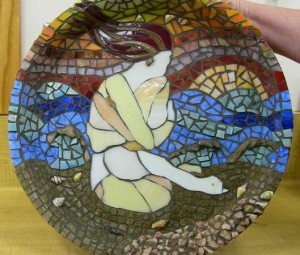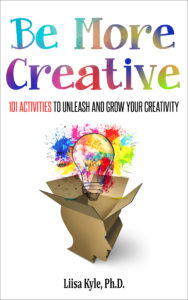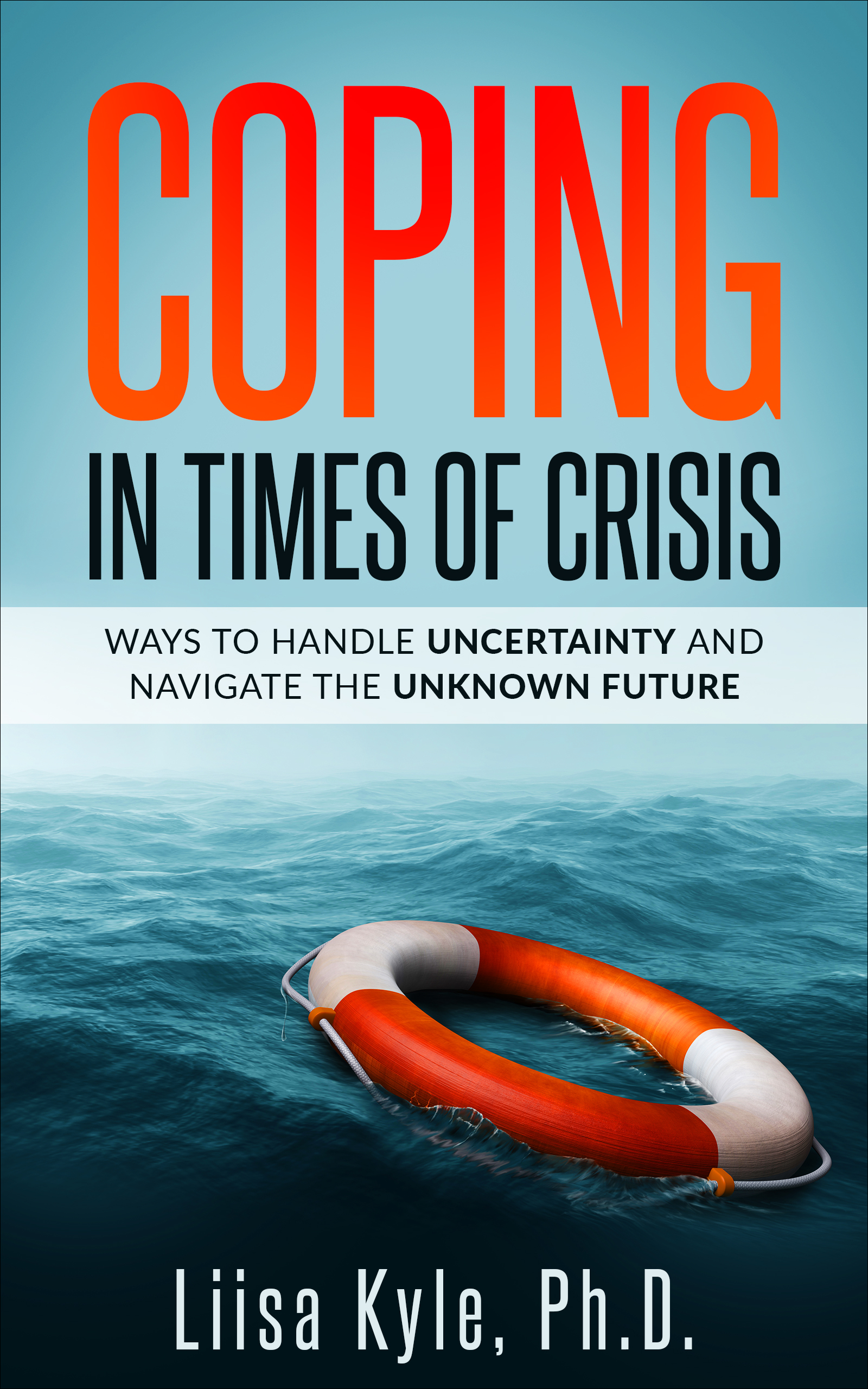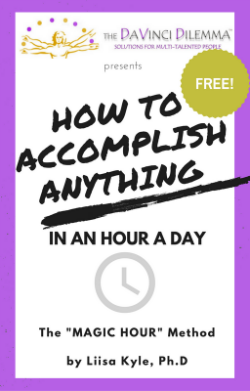When was the last time you took a class or a workshop to learn a new skill? As a multi-talented person, you may well balk saying, ‘The last thing I need to to acquire yet another skill — I can’t manage the ones I’ve already got!” Yet DaVincis can benefit a lot when they learn something new — which is why I often recommend doing so to my uber-talented coaching clients.
Full disclosure: There are many ways to learn and my favorite is via school. I loved it as a kid and I adore it even more now. I can’t decide if I prefer teaching or taking classes. Either way, I get a certain happy tingle whenever I’m on campus. Every semester I sign up to take one or more courses. Most of what I take is focused on deepening my existing skill set. But I’m also keen to learn something new, so I keep an eye peeled for those opportunities.
Recently, I signed up for a mosaic workshop. It reminded me — again — why venturing into new terrain is so beneficial for DaVincis:
1. It’s good to remember that you don’t know everything.
Talented as you are, there’s always more you can learn. There are always experts who know a subject better than you. When you learn something new, you have the opportunity to appreciate others’ skills.
I’ve made mosaics in the past. I figured, how hard can it be? You slap down some grout, push some broken bits of pottery into it and voila! You have a mosaic. Well, you do have a mosaic..and the quality is apt to be iffy, if my past efforts are any indication. It didn’t take long under the tutelage of someone who actually knew what she was doing before I realized that I’d been going at all wrong. I had been using the wrong materials, the wrong tools and the wrong techniques.
2. Learning something new can build on and enhance the skills you’ve already got.
Acquiring new techniques can draw from your current skill set, consolidate them, and expand them.
It was easy to incorporate my design, collage, mixed media and glass working techniques into my new mosaic project. My new mosaic project gave me an opportunity to extrapolate these older skills in the context of a new medium.
3. When you learn something new, you will make mistakes.
It is unreasonable to expect that you will be speaking fluent French after one lesson. If you take up piano, it will require a fair bit of effort and practice before you play passably, let alone flawlessly.
It can be odd for someone who is used to doing things well to be put in a position in which their results are likely to be sub-par. That’s why perfectionists often get very frustrated when they learning something new — they’re used to being competent and they have sky-high standards for themselves — so doing things imperfectly is unnerving. They are self-conscious that their initial attempts to parlez francais invite an unfortunate comparison with native speakers…so decide they ‘can’t learn French’ or ‘don’t have a talent for languages’.
However, if you let it, the experience can be freeing. Rather than getting all caught up in how you sound during your first French class, give yourself permission to make mistakes for the purpose of learning.
Rather than obsessing over the quality of my first (real) mosaic — or fretting over the quality of the final product — I halted these unhelpful thoughts by saying, “Hey, this is not a product, it’s an experiment. It’s a chance to learn. It doesn’t matter how it turns out or how many mistakes I make along the way — it’s my first such vessel. The next one will be better.”
Which, when you think about it, is a far healthier, far more helpful internal dialogue during ANY project than, say, constantly evaluating and judging your work as you do it. If you’re constantly scrutinizing your efforts and working in fear of making mistakes, that can squelch your creativity…if not utterly paralyze it.
4. You may discover a new talent.
It may be that you have an affinity or flair for what you’re learning. You may find yourself with a burgeoning new talent.
I enjoyed my first (real) mosaic so much, I set up a new, properly stocked mosaic station in my studio for future such projects.
5. You will generate more ideas.
Anytime you learn something new, it stimulates your brain. You can’t help but conjure up many ideas — ways to improve your existing work, exciting new directions they could turn as well as plenty o’ potential new projects.
In my case, my recent mosaic workshop sparked refinements in a glass fusing project I’m doing. It generated this blog. And my newfound interest in mosaics plus my existing passion for welding has sparked a completely new project: making an outside patio set.
*****
Activity: Look for classes or workshops on new topics. Review your local college, Parks & Recreation, and/or Learning Annex offerings. What would be a fun new skill to acquire? What new techniques would you like to add to your creative toolbox?
***
For more tips and techniques, check out my workbook BE MORE CREATIVE: 101 Activities to Unleash and Grow Your Creativity
***
Want to re-publish this article? Go for it – just include the author’s name, a link to this original post and the following text blurb:
Are you struggling with too many talents, skills, ideas? You may have The DaVinci Dilemma™! Find tools, fun quizzes, coaching, inspiration and solutions for multi-talented people at http://www.davincidilemma.com/ .





